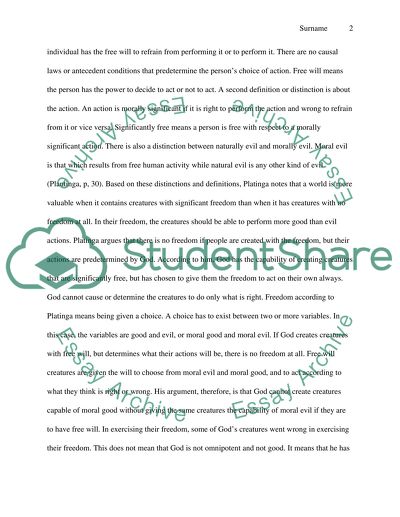Cite this document
(“Alvin Plantinga's Free Will Defense Essay Example | Topics and Well Written Essays - 2000 words”, n.d.)
Alvin Plantinga's Free Will Defense Essay Example | Topics and Well Written Essays - 2000 words. Retrieved from https://studentshare.org/philosophy/1403050-alvin-plantinga-s-free-will-defense
Alvin Plantinga's Free Will Defense Essay Example | Topics and Well Written Essays - 2000 words. Retrieved from https://studentshare.org/philosophy/1403050-alvin-plantinga-s-free-will-defense
(Alvin Plantinga'S Free Will Defense Essay Example | Topics and Well Written Essays - 2000 Words)
Alvin Plantinga'S Free Will Defense Essay Example | Topics and Well Written Essays - 2000 Words. https://studentshare.org/philosophy/1403050-alvin-plantinga-s-free-will-defense.
Alvin Plantinga'S Free Will Defense Essay Example | Topics and Well Written Essays - 2000 Words. https://studentshare.org/philosophy/1403050-alvin-plantinga-s-free-will-defense.
“Alvin Plantinga'S Free Will Defense Essay Example | Topics and Well Written Essays - 2000 Words”, n.d. https://studentshare.org/philosophy/1403050-alvin-plantinga-s-free-will-defense.


